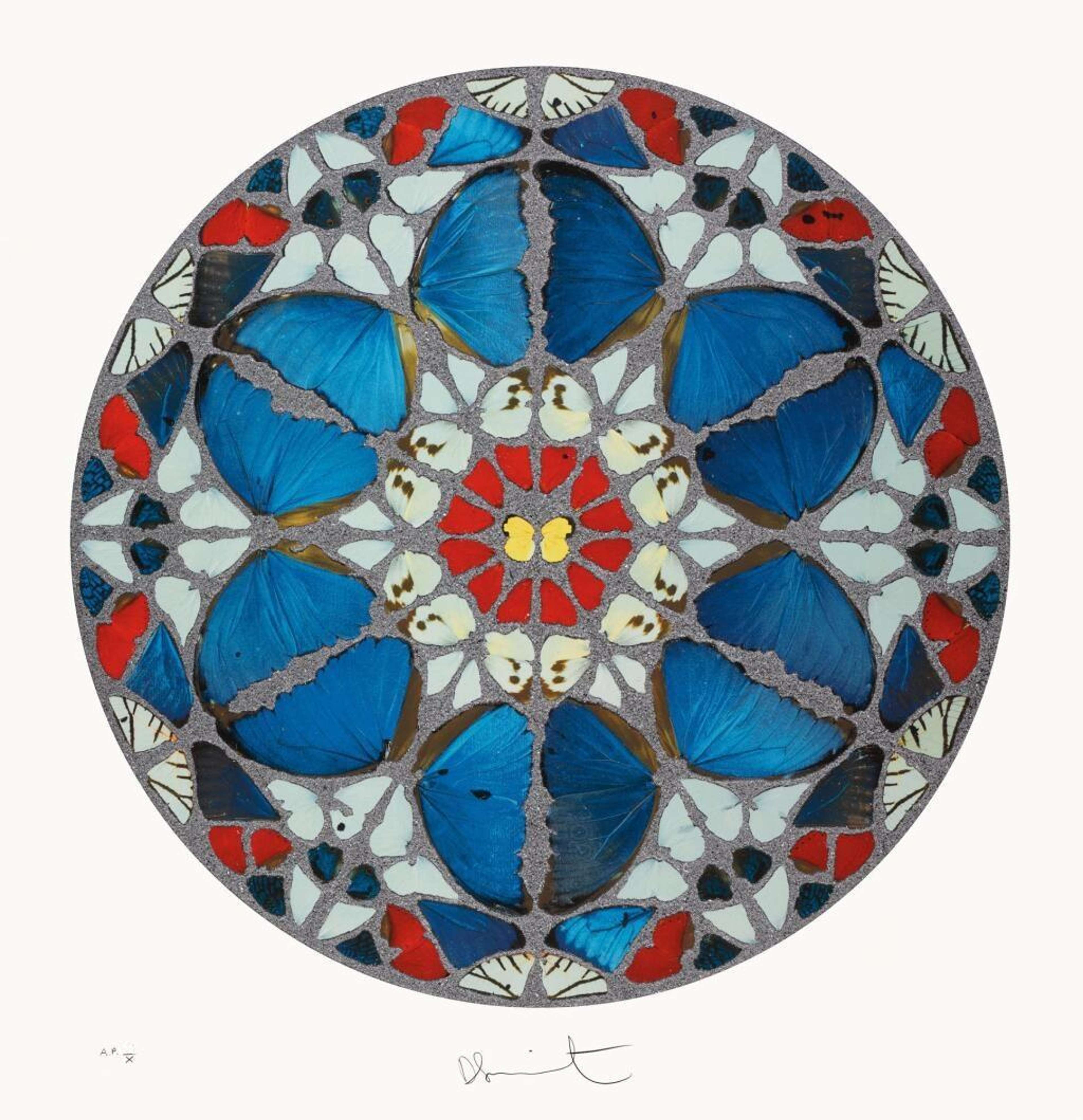
Verba Mea Auribus (diamond dust)
Verba Mea Auribus (diamond dust)
Signed Print
Damien Hirst
£12,500-£19,000
$25,000-$40,000 Value Indicator
$23,000-$35,000 Value Indicator
¥120,000-¥180,000 Value Indicator
€14,500-€22,000 Value Indicator
$130,000-$200,000 Value Indicator
¥2,600,000-¥3,950,000 Value Indicator
$17,000-$25,000 Value Indicator
There aren't enough data points on this work for a comprehensive result. Please speak to a specialist by making an enquiry.
73 x 75cm, Edition of 50, Screenprint
Auction Results

Track auction value trend
Meaning & Analysis
Verba Mea Auribus is a silkscreen print with glaze created by renowned contemporary artist, Damien Hirst in 2009. In this print, Hirst produces an intricate pattern formed of concentric circles made out of butterfly wings. The hypnotic effect of the pattern is captivating. In the centre of the composition is a yellow butterfly.
The print is part of the artist’s Psalms series. In this series, which the artist started in 2008, Hirst produces various patterned canvases, all of which use butterflies as their main stylistic element. The prints in the series are all named after a psalm from the Old Testament, emblematic of Hirst’s interest in contemporary belief systems, such as religion. The Psalms are part of a broader series, the Kaleidoscope series, an impressive project dating back to 2001, which was inspired by the intricate pattern of butterfly wings Hirst saw on an old Victoria tea tray.
Hirst has been drawn to butterflies since the start of his artistic career in the late 1980s when he was studying Fine Art at Goldsmiths College. Hirst describes the insect as a “universal trigger,” arguing that “Everyone’s frightened of glass, everyone’s frightened of sharks, everyone loves butterflies.”
